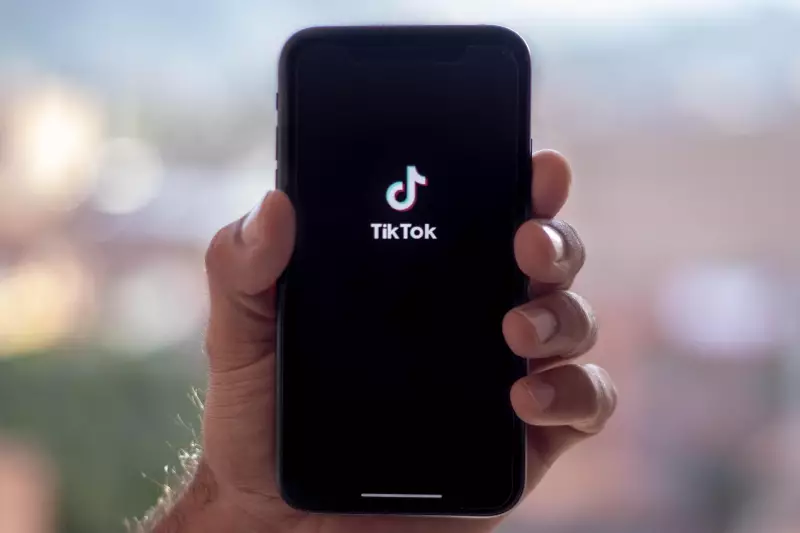Credit Card Fraud: What Is It and How To Protect Yourself Against It
Table of Contents
- By IDStrong User
- Published: Sep 18, 2020
- Last Updated: Mar 18, 2022
Credit card fraud is a fact of life, and most Americans have experienced it or know someone who has. Technology has brought with it new ways for criminals to snoop, and flee with our information. Identity theft is another real concern related to data breaches at credit card and credit monitoring companies. It’s hard to feel safe these days. There are things you can do, however, to keep your credit cards as secure as possible.
What is Credit Card Fraud?
Credit card fraud is the illegal, unauthorized use of your credit cards or credit card numbers. Usually, this appears as charges on your account that you did not initiate. Sometimes criminals use credit cards to take out cash withdrawals. Often credit card scams are linked to identity theft. Credit card scams also apply to ACH payments, direct deposits, and prepayment cards.
How Does Credit Card Fraud Happen?

There are dozens of ways that credit card fraud happens. Criminals are getting cleverer by the day. Some of the more common ways are:
Interacting with a Hacked Website
Hackers obtain people's credit card information by infecting trusted (and not-so-trusted) websites. These criminals find and abuse vulnerabilities in a website to get administrator-level control and infect it with malware.
So, whenever a customer purchases an item or downloads a program from an infected site, they give cybercriminals extensive data, including their credit card information.
Hackers understand the vulnerabilities of the most prominent CMS (content management system) services. They also know that any weaknesses will likely be fixed as soon as they're discovered. So, hackers don't waste any time putting that knowledge to use.
However, it isn't only websites using popular CMS that should be wary. Even custom content management systems are frequently compromised due to a lack of attention to security or a built-in weakness that an unscrupulous developer left in.
All that most website owners can do is thoroughly research their CMS' safety features beforehand and ALWAYS apply updates right away. This heavily reduces the time that hackers have to capitalize on their discovery. Another tip is to avoid third-party plug-ins, as those services don't regularly update with security in mind.
Staying Safe While Shopping Online
Consumers have no say over which CMS websites use or what plug-ins they install. However, online shoppers can better protect themselves by building good habits and noticing the warning signs of an untrustworthy website.
- Stick With Reputable Stores: A general rule is to only shop online at stores you can physically visit. This means the business has a brick-and-mortar storefront as well. You'll want to be more cautious if you aren't familiar with the company already. Check out third-party sites dedicated to reviewing online stores, such as Sitejabber. A giant warning sign is if the business only has a few reviews. It's more likely you've stumbled on a dangerous landmine rather than a hidden gem.
- Protect Your System: Unless you're a professional tightrope walker, having a safety net is never wrong. Properly updated antivirus and firewalls will usually block any malware trying to steal your financial or personal information. Most people know the importance of online security, but it's shocking how many Americans leave their systems open to attack.
- Shop On Encrypted or Trusted Networks: ALL online activity should be done on private, secure networks. However, this is a nearly impossible demand in our digitally focused lives. The compromise is to install a virtual private network (VPN) on all your devices. These services automatically encrypt your online activity and hide your physical location from hackers.
Use a Credit Card: Debit cards don't offer the same security features as credit cards. Credit card carriers don't typically hold consumers responsible for fraudulent charges over $50; a stolen credit card won't let criminals into your private bank accounts.
Involvement in a Data Breach
Businesses, small and large, aren't safe from a data breach. These enterprises store immense amounts of personal and financial details, including full names, contact information, and credit card information.
Hackers obtain unhindered access by exploiting weaknesses in an organization's networks, applications, and human elements. There are many ways in for them, but it all leads to your credit card data ending up for sale on the dark web.
Point of Sale (PoS) Attacks
Point of Sale devices include card scanners, tappers, and swipers in retail transactions. They work by instantly calculating customer payments and authorizing the sale through online inventories.
Consumers can view the operating systems (OS) used by PoS machines as watered-down versions of Windows and Linux. While these OS choices are familiar, that fact works against them. Thousands of existing malware programs are primed and ready to attack PoS machines, depending on their operating system.
The last few decades have greatly improved the security of payment cards with encrypted chips and magnetic stripes. However, PoS devices decrypt cards in their RAM (memory). This is where hackers attack through "RAM Scraping."
One of the most significant data breaches in American history was due to a PoS attack. Target lost the information for roughly 110 million customers in the Winter of 2013. This was a wake-up call to all industries that cyberattacks weren't restricted to small-scale threats.
Card Skimmers
A dangerous but easily preventable form of attack is "Card Skimming." Criminals attach an extra card reading device to PoS devices at ATMs, gas stations, and convenience stores. Installing skimmers at places like retail stores and restaurants is possible, but it's much more difficult since there's usually an employee monitoring the register.
Skimmers collect card numbers and send them to the criminal who uses the information to make fraudulent purchases. Shoppers who make a habit of inspecting payment devices will recognize low-grade skimming scams without much effort.
Recognizing a Skimmer
A quick check is enough to find most skimmers. These practices are best used at high-risk places like public ATMs and gas station pumps.
Card skimmers are frequently installed directly on top of the legitimate card reader. It works the same way as the original, which keeps indoor gas station attendants from noticing it.
However, the extra bulk makes these devices stick out more than usual. A quick comparison with other card readers at the gas station will make the difference obvious.
The most noticeable element of a card skimmer is that it's shaky. Card readers are robust and solid devices, especially if they're designed for outdoor use. A skimmer hastily installed atop another reader won't be attached as securely. Simply shaking or wiggling it with your hand will cause it to loosen.
Falling for a Phishing or Vishing Attack
Phishing emails are another way your credit card data may be stolen. Never click links in emails that come from an unfamiliar source. Even if you think you recognize the sender, criminals are very good at disguising themselves and appearing legitimate.
Spear phishing is a specialized form of phishing where attackers customize their deceptive messages to trick specific individuals or organizations. It involves researching and gathering information about the intended targets to make the phishing attempts more convincing and increase the likelihood of success.
Vishing is a form of phishing, but it’s a phone scam where someone calls you to verify your identity or gets you to donate, make a payment or other types of ruses. They collect your credit card details that way, and then they are off to make purchases. Sometimes they offer you a free gift, and all you have to do is pay the shipping and handling. Do not fall for it; it’s a scam.
Of course, the old fashion way you may become a victim of credit card fraud is if you lose your wallet or it is stolen. Regardless of how they get their hands on your credit card, you must take quick action if it happens to you to prevent a data breach.
How To Prevent Credit Card Fraud

It is impossible to prevent credit card scams completely, but you can take steps to reduce the possibility and prevent credit card scams which can lead to identity theft and other serious consequences.
- Only carry the cards you need when you visit shopping locations or restaurants.
- Never give out your credit card number to anyone who calls you.
- Do not click links or download attachments in email.
- When buying online, only purchase from reputable stores with a secure connection (https).
- Never sign a blank credit card receipt.
- Save all your receipts and compare them with your monthly credit card statement. Review your statement immediately upon receipt to report any unauthorized activity quickly.
- Store PINs separate from debit or credit cards.
- Never lend your credit cards to someone else, even your kids.
- Be cautious of buying from someone in another country or from a flashy website that looks legitimate.
- Stay away from any deals that sound too good to be true, they are.
- Sign up for credit monitoring with IDStrong.com or another company to stay protected.
- Before getting gas or using an ATM, check for credit card skimmers.
- Shred paperwork that contains your credit card number.
- Make a list of all your cards and the bank’s contact information, so you will have it all ready if something happens.
- Use strong password generator for credit card accounts
- Keep your computer and other devices updated with the most recent patches and antivirus software.
How To Report Credit Card Fraud
If you fall victim to a credit card fraudster, you need to take the following steps as soon as possible.
- Report your lost or stolen cards immediately to the bank which issued them. Use the 800 number on the back of the card to report the fraud.
- Have the cards canceled and reissued.
- Change your online passwords immediately to something very complex.
- Contact the major credit bureaus (Experian, Equifax, and TransUnion) and place a freeze on your history. Alternatively, you can add a 7-year fraud alert to your credit report.
- Contact the fraud department to dispute the charges so you won’t be responsible for paying them.
- Visit the Federal Trade Commission’s (FTC) website and report the instance of attempted or successful identity theft. You’ll need to do this before going to any law enforcement.
After your credit card is stolen, the thieves may attempt to get even more out of you through phishing emails or additional calls. Be on the lookout for anything suspicious, and never pay for anything you did not expressly order.
















